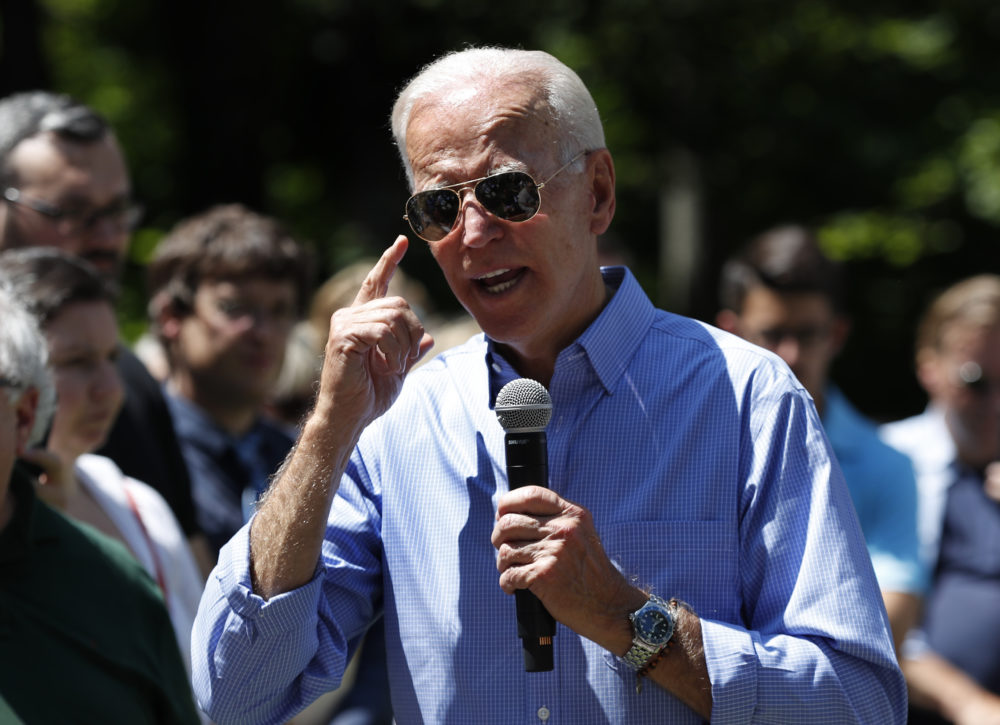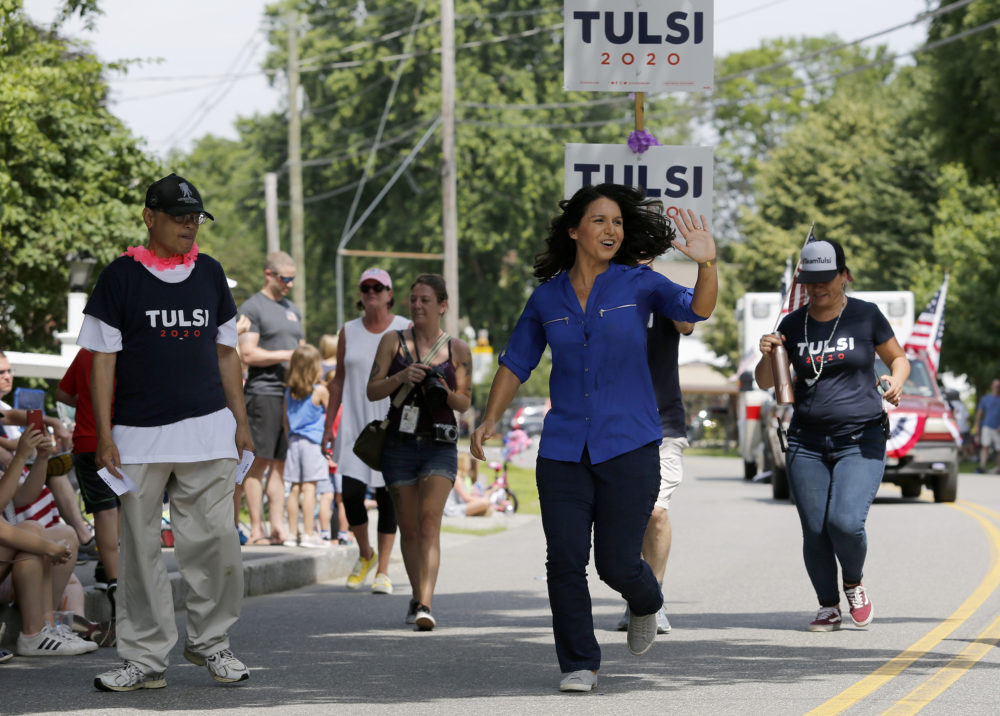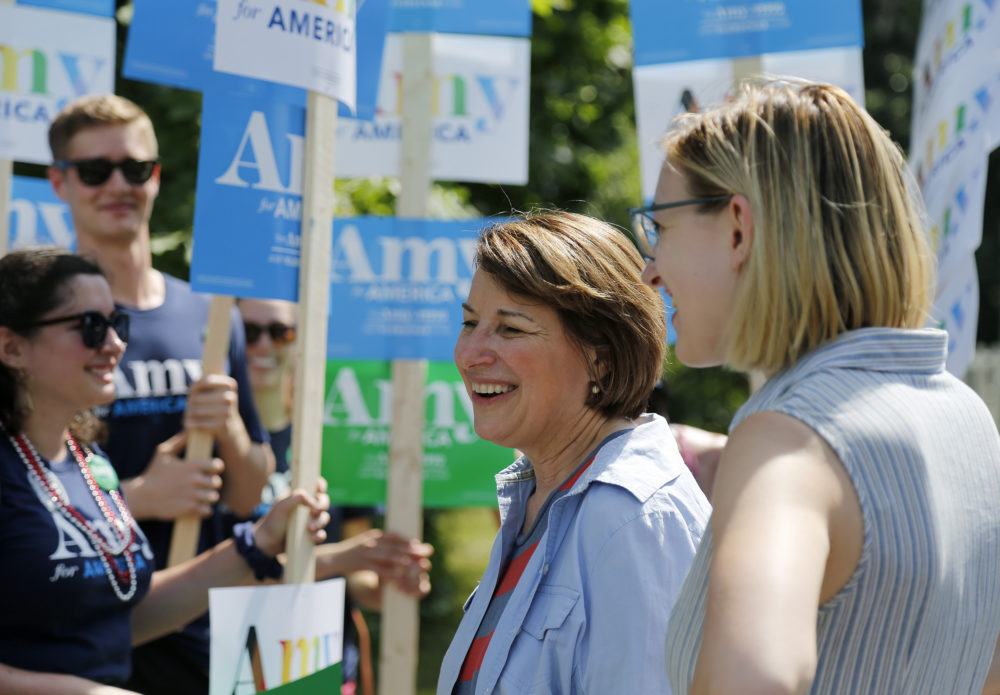Advertisement
In N.H.'s Remote North, Candidates' Rust Belt Messages Hit Home
ResumeIn an age when campaigns increasingly rely on social media or televised town hall meetings to court voters, face-to-face campaigning still has its place.
In the race for 2020, candidates are doing a bunch of it in New Hampshire’s North Country, a remote region with relatively few voters, but a place that remains key in defining New Hampshire’s self-image.
Watch presidential candidates as they make the rounds in the North Country, and you learn fast it’s a place politicians see as rich in political symbolism. When Joe Biden visited Berlin last month, he began his speech by invoking the city’s economic blight, turning it into a metaphor for his own political values.
“Sometimes when people fall on hard times, and neighbors when they fall on hard times, and cities and towns, and areas fall on hard times, we somehow try to kind of block it out," Biden said. "But the way I was raised, my dad used to have an expression, he would say everyone, everyone is entitled to be treated with dignity.”

On this day the North Country played two roles for Biden. With its shuttered mills, Berlin amounts to New Hampshire’s Rust Belt. And with the White Mountains visible through the windows of Berlin's city hall, it’s also a place where a career politician can signal affinity with the rugged outdoors.
“By the way, this is God’s country, this is just beautiful," he said. "Just look out the window. It really is, it really is, it’s just amazing, anyway.”
Berlin Mayor Paul Grenier introduced Biden at the event. He said Biden’s attention acknowledges a lesson from 2016 — that if Democrats want to beat Donald Trump, winning more support in places like Berlin would be helpful.
“I think that it represents some recognition that there are still a lot of white working class folks who have lost some voice from the Democratic Party — and look, we got a full house, which is great,” he said.
“We actually count to someone. So I’m impressed,” said retiree Theresa Lancey, who stood nearby. She said she’s interested in a few candidates, but Biden is the only one she feels she knows.
“You can’t do homework on every single one of them,” she said.
Lancey said it’s obvious what Berlin needs out of the next president.
“More money for this area," she said. "Main Street is empty. There is a sign that says shopping and restaurants. That’s a joke. There is no work. The drug situation is really bad, probably worst in the county right here.”
So that’s one North Country. And while poverty, jobs and drugs are issues across the region, those problems — really any truly pressing problem — felt far away at Franconia’s July 4th parade.

Would-be presidents, including Hawaii Congresswoman Tulsi Gabbard, made the scene in Franconia.
“We appreciate the warm welcome,” she said.
They joined the parade, marching alongside local Democrats like state Rep. Tim Egan.
“I think some of the ways we’ve been getting attention from presidential candidates is telling them, the North Country is a lot like middle America. I live with, you know, hippies and hunters," Egan said. "They both want a clean environment. Some want guns, some don’t. Some want to fund education, some don’t. So when you come here as a presidential candidate, I think you are getting a real microcosm of what society is like."
And for many locals, the most pressing concerns are local, like reliable phone lines and basic infrastructure.
When Minnesota Sen. Amy Klobuchar campaigned at the Polish Princess Bakery in Lancaster, she seemed bent on proving she gets that.
“Rural call completion is a huge problem. Drug shortage. A billion dollars for school safety. So I’ve really listened to my constituents and take down those practical issues. And I think that’s what we need in the White House," she said.

When Klobuchar was done and headed to her next campaign stop, Stefan Saal, a local sculptor, was quick to joke about all the attention his town is getting from would-be presidents.
“Lancaster is on the map," he said. "Who knew?”
But Saal was as quick to add that just because candidates were coming north, they shouldn’t expect locals to be too impressed by a fluency in issues perceived as rural.
“Who the hell cares?" Saal asked. "You know, what do you believe in? What are your principles? What are you going to stand for, what aren’t you going to stand for?"
And that’s another North Country — home to the blunt-talking voter. In a region where the population is shrinking, those remain plentiful.
This story was first published by New Hampshire Public Radio on July 22.
This segment aired on July 25, 2019.